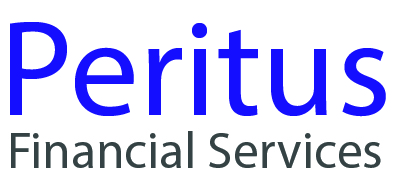
What Are The Advantages & Disadvantages Of Hire Purchase?
Hire purchase offers a practical route for businesses who are looking to use commercial finance packages in order to fund the acquisition of costly assets, such as machinery and vehicles which are essential for their day-to-day operations.
Using hire purchase to fund these goods allows companies immediate access to the required assets while spreading the financial burden across manageable monthly repayments.
Essentially, a hire purchase agreement means making regular payments towards the total cost of an asset, and then being able to fully own that asset once the final payment has been made to the lender. Think of it like a mortgage but for some equipment and not a building, you make the monthly payments and then eventually you fully own whatever it is that you’ve been paying for.
While hire purchase can be an attractive option for many businesses, helping them to get their hands on critical operational equipment without huge upfront costs, it comes with quite a lot of things to consider.
Like any financing option, hire purchase has its advantages and disadvantages. Businesses must consider these carefully and in detail to work out whether or not hire purchase is right for them. In this blog, we’re going to take a more detailed look into how hire purchase works, when it can be a benefit to specific businesses, and what advantages and disadvantages of hire purchase are.
What Is Hire Purchase?
As we’ve explained, in simple terms hire purchase is a type of asset financing that serves as a vital tool for businesses aiming to acquire expensive items without the hefty upfront financial burden. It allows businesses to split the cost of expensive items like tools or machinery over several months and avoid having to take out loans or spend their cash reserves in order to do so.
The structure of a hire purchase agreement is straightforward: while the lender retains ownership of the asset during the payment term, the business gains the ability to use the asset immediately as if it were their own.
One of the defining features of hire purchase is the transfer of asset ownership. Unlike leasing, where the asset might never become the property of the lessee, hire purchase guarantees that ownership of the asset will pass to the business once all of the hire purchase payments have been made. This final payment often includes a nominal fee called the ‘option to purchase’ fee, which marks the official transfer of ownership from the lender to the business, completing the purchase process.
What Might A Business Use Hire Purchase For?
We know that a business will use hire purchase to avoid huge upfront costs on different kinds of equipment. But what are these exactly? It isn’t as though a business is going to commit to hire purchase payments for anything, it will usually be high-value, and often necessary items that they will take out this kind of asset finance for. Here, we explore a few of the common scenarios where hire purchase could be the ideal solution.
Essential Machinery & Vehicles: In sectors like manufacturing and logistics, high-quality machinery and reliable vehicles are non-negotiable. These assets are often very high-cost and can significantly strain a company’s cash reserves if they are purchased outright. Therefore, using hire purchase to buy machinery and vehicles and spreading the cost over time means companies keep their hard cash in the bank but are able to acquire and start using the equipment immediately.
Technology Upgrades: Whilst the silicon valley tech giants will have a much higher need for lots of good (and expensive) tech – pretty much every business these days will need some technology in order to run effectively. And this often isn’t cheap to purchase. For many businesses, periodic upgrades of computers, software, or other tech infrastructure will be needed if they’re going to keep up with their competition. That’s why many companies use hire purchase to roll out these upgrades company wide without having to rack up huge bills in purchasing everything in one go.
These are just two of the most common examples when it comes to a business using hire purchase. However, this list is by no means exhaustive – and there are certainly many other ways in which a company may use hire purchase in order to get hold of essential and expensive kit.
What Are The Advantages Of Hire Purchase?
If you’ve been paying close attention so far, then you will probably have already worked out some of the benefits hire purchase has for businesses as we’ve briefly touched on a few of them in the previous sections of this article. But, if you’ve skimmed through our article this far just to find the advantages – then here is a closer look at what makes hire purchase a popular choice of asset finance for businesses.
Spread Cost Over Time – One of the first and most obvious benefits of hire purchase is in its ability to spread the cost of expensive items over a period. This payment structure transforms what would potentially be a pretty heavy financial burden into manageable monthly instalments.
Eventual Ownership of the Asset – Hire purchase is sometimes seen as a form of leasing, and there are some similarities. But, unlike many leasing options where a business will never own the asset it is that they’re leasing, with hire purchase the ownership of the item is transferred to the company once the final hire purchase payment is made.
Immediate Use of the Equipment to Generate Revenue – From the moment the hire purchase agreement is signed, businesses can use the asset in their operations. The immediate access to what is likely an essential part of a business’ infrastructure means companies can start generating revenue from it without having to wait.
Easier Access to Financing – Hire purchase can be easier to secure than other forms of financing, especially for businesses that might not have built up a good credit history over time. It is often the case that the asset being financed serves as collateral for the agreement, reducing the risk for the lender and meaning they tend to be more willing to approve applications.
Fixed Interest Rates – Usually, hire purchase agreements come with fixed interest rates, providing businesses with the safety of being able to accurately predict their finances. Knowing exactly how much needs to be paid each month eliminates the uncertainty that can come with variable-rate financing options.
These advantages of hire purchase make it a more versatile and strategic choice for many businesses that need to acquire essential assets without massively disrupting company finances. Now that you understand the different benefits of hire purchase, you’ll hopefully be able to have a better chance at making informed decisions on whether or not it’s the right choice for your business.
What Are The Disadvantages Of Hire Purchase?
Of course, to make any informed decision as to whether or not hire purchase is the right option for your business, you’ll have to weigh up the advantages and disadvantages of hire purchase. As is always said, nothing in life is free. And whilst there are some significant benefits of hire purchase, there are also some drawbacks to it too – understanding these should certainly form a part of your decision making process.
Locked into Long-term Agreements – The first real disadvantage of hire purchase is the commitment to a fixed, long-term payment agreement. Once you enter into a hire purchase contract, your business is obligated to see it through to the end or it will lose the asset being financed and end up with a not so great credit rating in the process.
Higher Overall Costs Due to Interest – Although spreading the cost over time eases immediate financial pressure, it does mean you’ll end up paying more for the asset in the long run due to interest charges. It is certainly worth working out if the additional interest is really worth the ability to pay monthly before committing to hire purchase.
No Immediate Ownership – With hire purchase, the asset remains the property of the lender until the final payment is made. And whilst hire purchase payments are tax deductible, you can’t capitalise on other tax benefits like depreciation until you finish the hire purchase payments and the assets become yours.
Risk of Repossession – If the asset you’re using hire purchase to acquire is essential to your business, then to put it mildly, having it repossessed would certainly cause problems. But if you fail to meet the monthly repayments on time and in full then this is exactly what will happen – not only affecting your operations but also your business’ credit rating and reputation.
Insurance Considerations – If your business has insurance policies covering its assets and equipment, it’s crucial to ensure that items under hire purchase are also included. Typically, these assets should be covered by your existing policy, but it’s essential to perform due diligence to confirm this. If you don’t, then you might find yourself making payments on equipment that has been stolen or damaged and is not eligible for a claim.
Setting these disadvantages of hire purchase against its advantages, it should hopefully leave you in a much better position to decide whether or not it’s going to be the right financing option for you. Make sure you consider both sides of the equation and think about how each advantage and disadvantage of hire purchase will impact your business specifically.
Work With Peritus For A Smooth Commercial Finance Journey
Although we hope our article has given you a great deal to think about and, all being well, has given you the information you need to weigh up both the advantages and disadvantages of hire purchase – we’d be more than happy to provide some expert guidance and help you navigate hire purchase as a partner and not just a source of information!
At Peritus Financial, we specialise in helping businesses like yours evaluate and choose the best financial products for their goals, including hire purchase. Whilst this blog has been written to try and help you, the reader, understand the advantages and disadvantages of hire purchase – we already do, and in great detail!
So, if you’re looking to secure some commercial finance for your business, then contact Peritus Financial today and have a partner by your side that makes sure you make the best possible informed decisions.


